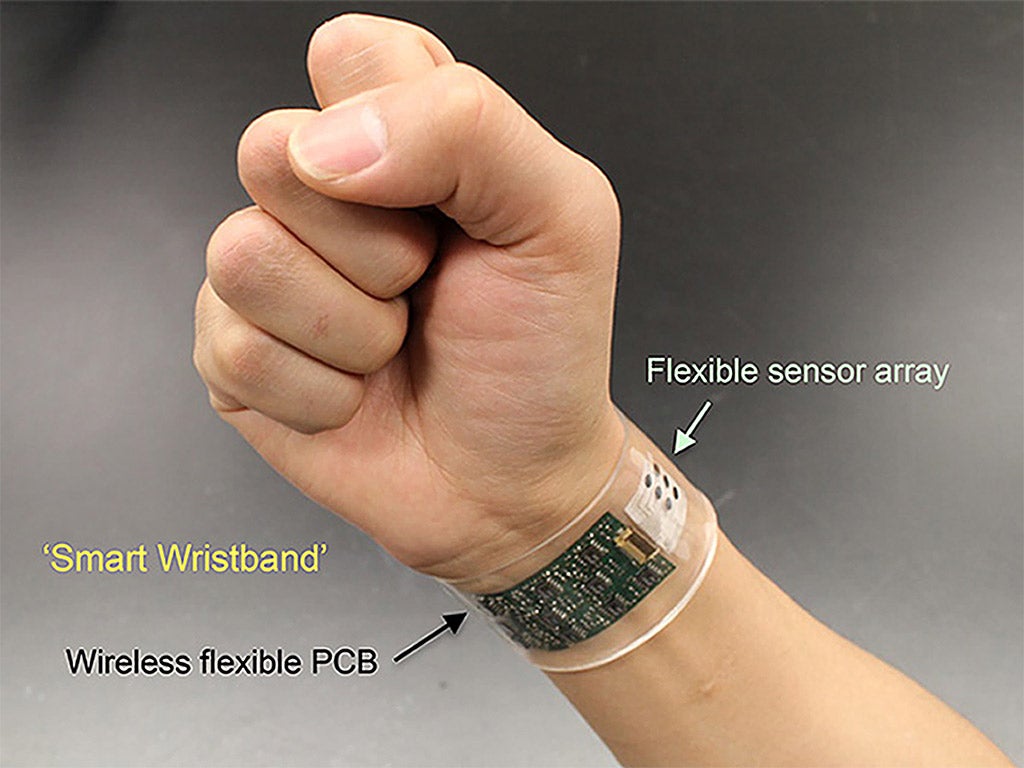Health monitors can have an unwanted side effect - extreme anxiety
Real-time health data is enough to make a cyberchondriac sweat, says Rhodri Marsden

Your support helps us to tell the story
From reproductive rights to climate change to Big Tech, The Independent is on the ground when the story is developing. Whether it's investigating the financials of Elon Musk's pro-Trump PAC or producing our latest documentary, 'The A Word', which shines a light on the American women fighting for reproductive rights, we know how important it is to parse out the facts from the messaging.
At such a critical moment in US history, we need reporters on the ground. Your donation allows us to keep sending journalists to speak to both sides of the story.
The Independent is trusted by Americans across the entire political spectrum. And unlike many other quality news outlets, we choose not to lock Americans out of our reporting and analysis with paywalls. We believe quality journalism should be available to everyone, paid for by those who can afford it.
Your support makes all the difference.You can tell a lot from your sweat, apparently. Scientists at the University of California, Berkeley, have just announced the invention of a "multiplexed in-situ perspiration analysis" device which can assess your glucose, lactate, sodium and potassium levels from sweat alone, and instantly send the numbers to your phone, so that you can pore over them endlessly.
Sensors like these, along with chest straps, smart contact lenses and the like, undoubtedly represent triumphs of medical engineering but, while we're told that they give us the ability to continually monitor our health, little is ever said about the unwanted by-product of that ability: anxiety.
You could see it as a newer form of the cyberchondria that was ushered in by the internet. You know the kind of thing: we search online for our symptoms, print off reams of stuff and march into an appointment with our doctor to confidently (but wrongly) assert that we have renal hypodysplasia before demanding appropriate treatment.
Our hunger for information relating to our health is huge, and the market for health-related wearables is increasing, but what's the effect of all the data that's generated as a result? Most debates about that data tend to focus on concerns about privacy, monitoring, information storage and the effect on the market for health insurance, but there's also a data overload issue that affects our mental rather than physical health. We want to amass more information about our bodies, but too much of that information is disorientating.
That disorientation has been likened to the unsettled feeling people get when they're in hospital and hear alarms going off. These alarms are inevitably equated with something bad happening – but health monitoring is, by its very nature, alert city.
Real-time analysis from a wearable might suddenly advise you to drink some water, take some medicine or run about for a bit, but we can easily become slaves to these new signals that we've become inundated with. "Look! The numbers have changed! I must do something!" Because these numbers are linked to our physical well-being, we're bound to be fascinated by them, but this process of continuous assessment isn't always helpful; they're just indicators, after all, and interpreting them isn't always easy.
So the more numbers there are, the more we will rely on software to alert us to worrying outliers and the more we will worry about alarms that we might have missed. The technology ends up in a position of power, but has that power been properly earned? It's not clear why, for example, we'd place more trust in a device that promises real-time monitoring of dehydration and fatigue when our body already has two built in systems – thirst and tiredness – that do a pretty good job already. But as this stuff begins to percolate the consumer market, people will come to rely on them. "How are you feeling?" "I dunno. I'll just check my phone."
Much like the security cameras that are sold on late-night shopping channels by earnest presenters promising that this is the only way for you to properly protect your home and your family, health-related wearable devices tend to come with a "peace of mind" guarantee – but in many cases they provide the exact opposite.
Maybe, as the technology develops, we'll learn to regard the numbers they generate with a kind of weary nonchalance. But in these early stages we're thinking of them as a passport to immortality, when they're often just a pathway to anxiety.
Twitter: @rhodri
Join our commenting forum
Join thought-provoking conversations, follow other Independent readers and see their replies
Comments